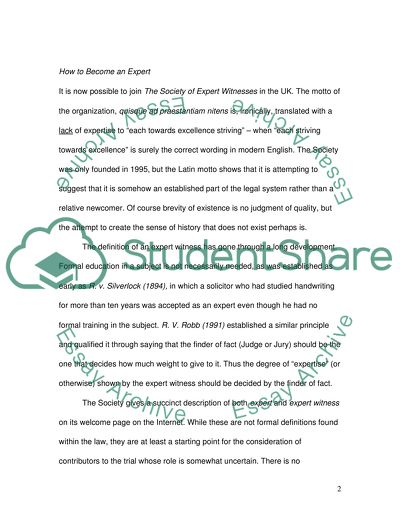Cite this document
(“The Admissibility of Expert Witnesses Essay Example | Topics and Well Written Essays - 5000 words”, n.d.)
The Admissibility of Expert Witnesses Essay Example | Topics and Well Written Essays - 5000 words. Retrieved from https://studentshare.org/law/1517937-the-admissibility-of-expert-witnesses
The Admissibility of Expert Witnesses Essay Example | Topics and Well Written Essays - 5000 words. Retrieved from https://studentshare.org/law/1517937-the-admissibility-of-expert-witnesses
(The Admissibility of Expert Witnesses Essay Example | Topics and Well Written Essays - 5000 Words)
The Admissibility of Expert Witnesses Essay Example | Topics and Well Written Essays - 5000 Words. https://studentshare.org/law/1517937-the-admissibility-of-expert-witnesses.
The Admissibility of Expert Witnesses Essay Example | Topics and Well Written Essays - 5000 Words. https://studentshare.org/law/1517937-the-admissibility-of-expert-witnesses.
“The Admissibility of Expert Witnesses Essay Example | Topics and Well Written Essays - 5000 Words”, n.d. https://studentshare.org/law/1517937-the-admissibility-of-expert-witnesses.


